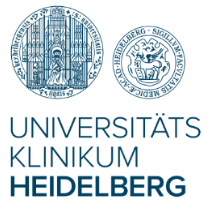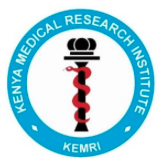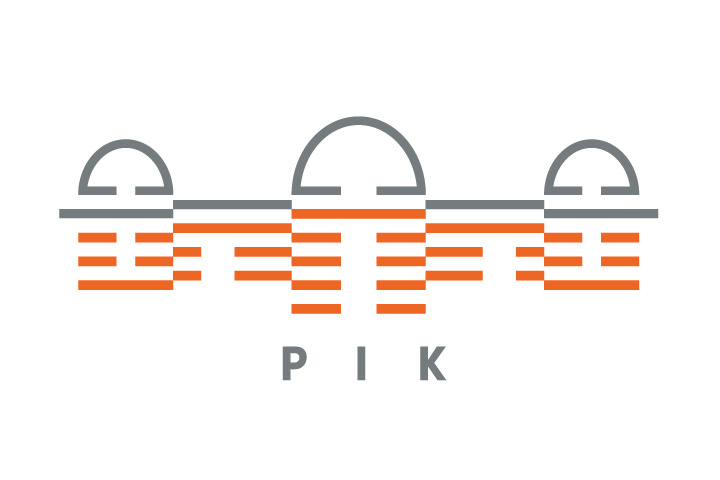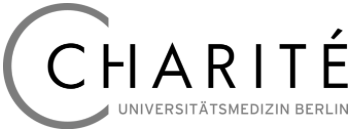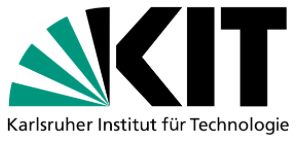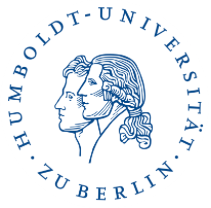Members and Partners

Heidelberg Institute of Global Health (HIGH)
Universitätsklinikum Heidelberg
Im Neuenheimer Feld 130.3
69120 Heidelberg, Germany
Phone: +49 6221 56 38040
Email: till.baernighausen@uni-heidelberg.de
Till Bärnighausen is a population health researcher who focuses on three areas of research: (i) establishing the causal impacts of large-scale global health interventions – such as HIV treatment, HIV prevention, and childhood vaccination – on health, economic and social outcomes; (ii) identifying and testing innovations to improve the delivery of global health interventions through public-sector health systems, and (iii) developing new methods for applied population-based health research.
Till has been the principal investigator on grants from a range large science funders, such as the US National Institutes of Health (including five R01 grants), the European Union, the European Commission, the Alexander von Humboldt Foundation, the Wellcome Trust, the International Initiative for Impact Evaluation (3ie), Elton John AIDS Foundation, and the Clinton Health Access Initiative. He has also received research funding from Harvard, Rush Foundation, William F. Milton Fund, Andrew W. Mellon Foundation, the German Academic Exchange Service, International Development Research Centre Canada, USAID, WHO, UNAIDS and World Bank.
Till is Adjunct Professor of Global Health at the Harvard T.H. Chan School of Public Health in the US and a Senior Faculty at the Wellcome Trust’s Africa Health Research Institute (ARHI) in South Africa.
Within the Research Unit, Till Bärnighausen is the principal investigator of the central project “Development and analysis of population health cohorts in Burkina Faso and Kenya”, and he is the principal investigator of the sub-project “The effects of cool roofs on health, environmental and economic outcomes in rural Africa”.
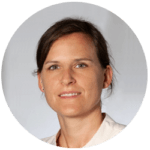
Mrs. Sandra Barteit (candidate Dr. sc. hum.)
Heidelberg Institute of Global Health (HIGH)
Universitätsklinikum Heidelberg
Im Neuenheimer Feld 130.3
69120 Heidelberg, Germany
Phone: +49 6221 56 34030
Email: barteit@uni-heidelberg.de
Her main interest, besides her PhD project, is in health informatics and how to best make use of technology to improve health globally, especially with methods from Artificial Intelligence and Machine Learning. Sandra is head of the IT of the Blended Learning in Zambia (BLiZ) project – a collaborative project between Chainama College of Health Sciences, SolidarMed and Heidelberg Institute of Global Health, and also head of the IT at the Institute of Global Health, Heidelberg University.
Within the Research Unit, Sandra Barteit is the leading postdoc in the central project “Development and analysis of population health cohorts in Burkina Faso and Kenya”.
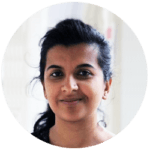
Dr. sc. hum. Aditi Bunker
Heidelberg Institute of Global Health (HIGH)
Universitätsklinikum Heidelberg
Im Neuenheimer Feld 130.3
69120 Heidelberg, Germany
Email: aditi.bunker@uni-heidelberg.de
Aditi has expertise in time-series analysis of temperature-non-communicable disease (NCDs) relationships in vulnerable populations, including the elderly and inhabitants of low-and-middle income settings. She has presented a massive online open course hosted by the Centre Virchow-Villermé, Paris, on climate change and NCDs for Policy Makers and taught a time-series course at Harvard University. Aditi has worked as a policy analyst for the New Zealand government and on public health projects in Bhutan and Germany.
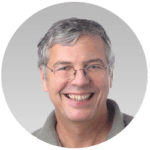
Prof. Dr. Dr. Rainer Sauerborn
Heidelberg Institute of Global Health (HIGH)
Universitätsklinikum Heidelberg
Im Neuenheimer Feld 130.3
69120 Heidelberg, Germany
Phone: +49 6221 56 5038
Email: rainer.sauerborn@uni-heidelberg.de
He trained as a physician in Bonn, Heidelberg and London; then he did research at the Harvard School of Public Health and at Tufts University in Boston. In the early 1980s Rainer Sauerborn spent three years as a “District Medical Officer” in Nouna (Burkina Faso). Since then, numerous research projects have linked him to the country.
He is also a member of the Intergovernmental Panel on Climate Change (IPCC). Rainer Sauerborn is the spokespersons of the Research Unit, and he is the principal investigator of the sub-project “Climate change impact on household food security and child undernutrition“.

London School of Hygiene and Tropical Medicine (LSHTM)
Centre on Climate Change and Planetary Health
15-17 Tavistock Place
London WC1H9SH, United Kingdom
Phone: +44 20 7612 7874
Email: Kristine.Belesova@lshtm.ac.uk
Kristine is an environmental epidemiologist with background in sustainable development and focus on low- and middle-income countries. She has joined LSHTM in 2013. In the past, she has held appointments at the Potsdam Institute for Climate Impact Research (PIK, Germany), Dalla Lana School of Public Health (University of Toronto, Canada), United Nations University (UNU, Germany), and Latvian Environmental Investment Fund.
Kristine holds a PhD in Environmental Epidemiology from LSHTM, Associate Fellowship of the Higher Education Academy, and 1st Class BSc(Hons) in Sustainable Development from the University of St Andrews.
Within the Research Unit, Kristine Belesova is the leading postdoc of the sub-project “Climate change impact on household food security and child undernutrition“.

Centre on Climate Change and Planetary Health
15-17 Tavistock Place
London WC1H9SH, United Kingdom
Phone: +44 20 7612 7874
Email: Kristine.Belesova@lshtm.ac.uk
Dr Kristine Belesova is an environmental epidemiologist with background in sustainable development and focus on low- and middle-income countries. Her main research interests concern the impacts of global environmental changes on health and nutrition, monitoring of systems sustaining planetary health, development and evaluation of transformative solutions for health and sustainability. Kristine’s research has primarily focussed on the indirect effects of climate change on child undernutrition and mortality related to crop yield reductions in subsistence farming populations of Sub Saharan Africa, including epidemiological analyses and future projections. She is also involved in transdisciplinary research projects on health and sustainability of urban systems and low-income settlements, including the Wellcome Trust funded CUSSH consortium.
Kristine is leading the development of a Planetary Health Watch system aimed at integrated monitoring of factors related to health impacts of global environmental changes, drivers of these changes, and policy responses to protect health. She is also involved in the Lancet Countdown initiative on tracking global progress on climate change and health.
Kristine received research awards from the International Society of Environmental Epidemiology, Common Ground Research Network on Climate Change Impacts & Responses, and the UK Natural Environment Research Council. She has been awarded a Wellcome Trust grant for the project ‘Designing a Planetary Health Watch: Transdisciplinary Stakeholder Engagement’ and serves as the Deputy Director of the Centre on Climate Change and Planetary Health at the London School of Hygiene and Tropical Medicine (LSHTM).
Kristine holds a PhD in Environmental Epidemiology and Global Public Health from LSHTM, Associate Fellowship of the UK Higher Education Academy, and 1st Class BSc(Hons) in Sustainable Development from the University of St Andrews.
Within the Research Unit, Kristine Belesova is the leading postdoc of the sub-project “Climate change impact on household food security and child undernutrition“.
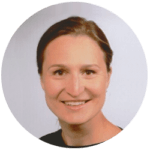
Heidelberg Institute of Global Health (HIGH)
Universitätsklinikum Heidelberg
Im Neuenheimer Feld 130.3
69120 Heidelberg, Germany
Phone: +49 6221 56 5086
Email: ina.danquah@uni-heidelberg.de
Ina is affiliated with the German Institute of Human Nutrition Potsdam-Rehbrücke (DIfE) and enjoys long-standing collaborations with Kwame Nkrumah University of Science and Technology, Kumasi (Ghana) as well as with Charité – Universitätsmedizin Berlin.
Ina Danquah is the deputy spokesperson of the Research Unit, and she is the principal investigator of the sub-project “Climate-sensitive nutrients, undernutrition and malaria”.

Universitätsklinikum Heidelberg
Im Neuenheimer Feld 130.3
69120 Heidelberg, Germany
Phone: +49 6221 56 36156
Email: isabel.mank@uni-heidelberg.de
Within the Research Unit, Isabel Mank is the leading postdoc of the sub-project “Climate-sensitive nutrients, undernutrition and malaria” in Burkina Faso.

Universitätsklinikum Heidelberg
Im Neuenheimer Feld 130.3
69120 Heidelberg, Germany
Phone: +49 6221 56 36156
Email: raissa.sorgho@uni-heidelberg.de
Raissa Sorgho has been working at the intersection of climate change and health for the past five years in both Europe and sub-Saharan Africa. She brings experience in qualitative work in low-resource setting especially in the areas of agriculture and nutrition. Raissa Sorgho who has been affiliated with the Heidelberg Institute of Global Health since 2014 holds a Bachelor of Science in biology, a Master of Science in International Health, and is finalizing her doctorate in Global Health, which focuses on regional climate change policies, national implementation of climate adaptation activates, and the local adaptation of subsistence farming households to climate change.
Her doctoral work is supported by German Academic Exchange Service (DAAD) scholarship. In addition, Raissa Sorgho has also received separate research grants from the German Academic Exchange Service (DAAD) and Stiftung Fiat Panis for her work.
Within the Research Unit, Raïssa Sorgho is the leading postdoc of sub-project “Climate-sensitive nutrients, undernutrition and malaria” in Kenya.
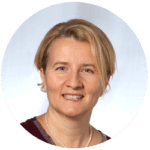
Heidelberg Institute of Global Health (HIGH)
Universitätsklinikum Heidelberg
Im Neuenheimer Feld 130.3
69120 Heidelberg, Germany
Phone: +49 6221 56 35056
Email: manuela.deallegri@uni-heidelberg.de
Her areas of expertise include health financing, impact and process evaluation, and economic evaluation, with specific application to social health protection and provider payment mechanisms in low- and middle-income countries. Her research focus ranges from maternal and newborn care to malaria to HIV/AIDS. Through the systematic application of a mixed methods approaches, Manuela combines quantitative and qualitative methods of data collection and analysis to all of her work. Within the Research Unit, Manuela De Allegri and her team support the health-economic evaluation of the adaptation trials.

Heidelberg Institute of Global Health (HIGH)
Universitätsklinikum Heidelberg
Im Neuenheimer Feld 130.3
69120 Heidelberg, Germany
Email: edmund.yeboah@uni-heidelberg.de
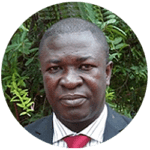
Centre de Recherche en Santé de Nouna (CRSN)
Rue Namory KEÏTA,
Nouna (Province de la Kossi), Burkina Faso
Phone: +226 20 53 70 43/55
Email: sieali@yahoo.fr
Within the Research Unit, Ali Sié is the co-principal investigator of central project 1, and the sub-projects “Climate change, heat stress and its effects on health and work capacity” and “The effects of cool roofs on health, environmental and economic outcomes in rural Africa”.

Centre de Recherche en Santé de Nouna (CRSN)
Rue Namory KEÏTA,
Nouna (Province de la Kossi), Burkina Faso
Phone: +226 70 70 74 96
Email: t_issouf2000@yahoo.fr
Within the Research Unit, Issouf Traoré is the co-investigator of two sub-projects “Climate change impact on household food security and child undernutrition” and “Climate change, heat stress and their impact on health and work capacity”.
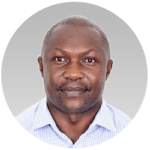
Centre for Global Health Research (CGHR)
Kenya Medical Research Institute (KEMRI)
C/O Box 1578-40100, Kisumu, Kenya
Phone: +254 728 251813
Email: munga_os@yahoo.com
He has been a technical advisor for a Health System Strengthening Program in North Eastern Province, Kenya for two years. Besides, Stephen has been a co-principal investigator and a manager in several projects in western Kenya and North Eastern regions in areas of health system strengthening, insecticide resistance, evaluation of durable wall linings, and targeted malaria vector control climate variability and change and diseases. In 2007, Dr. Munga worked with permission from his employer, as a Senior Guest Researcher at the Nile Basin Research Program, University of Bergen, Norway dealing with Climate Change and Human Health.
Within the Research Unit, Stephen Munga is co-principal investigator of central project 1, and the sub-projects “Climate change impact on household food security and child undernutrition“ and “Climate change, heat stress and its effects on health and work capacity”.
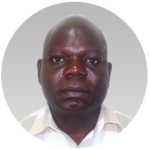
Centre for Global Health Research (CGHR)
Kenya Medical Research Institute (KEMRI)
C/O Box 1578-40100, Kisumu, Kenya
Phone: +254 721 757 340
Email: emuok@kemri.org
Dr. Erick Muok is the Acting Centre Director at KEMRI/CGHR. His expertise is in virology, parasitology and immunology, and Erick holds a PhD in Molecular Medicine from the Jomo Kenyatta University of Agriculture and Technology in Nairobi. He is very experiences in clinical trial conduct and analysis. Within the Research Unit, Erick Muok is the co-principal investigator of the sub-project “Climate-sensitive nutrients, undernutrition and malaria”.
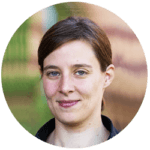
Potsdam Institute for Climate Impact Research (PIK)
P.O. Box 601203
14412 Potsdam, Germany
Phone: +49 331 288 2522
Email: katja.frieler@pik-potsdam.de
Within the Research Unit, Katja Frieler is the principal investigator of central project 2 “Provision of climate and bio-physical forcing data for health impact projections”.

Potsdam Institute for Climate Impact Research (PIK)
P.O. Box 601203
14412 Potsdam, Germany
Phone: +49 331 288 2649
Email: hattermann@pik-potsdam.de
Within the Research Unit, Fred Hattermann is the leading postdoc for the central project 2 “Provision of climate and bio-physical forcing data for health impact projections”.
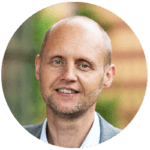
Potsdam Institute for Climate Impact Research (PIK)
P.O. Box 601203
14412 Potsdam, Germany
Phone: +49 331 288 2699
Email: lotze-campen@pik-potsdam.de
Within the Research Unit, Hermann Lotze-Campen is the principal investigator of the sub-project “Weather and climate-related impacts on crop yields and food production on regional and national scale”.
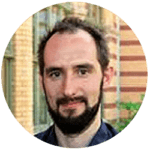
Dr. rer. agr. Christoph Gornott
Potsdam Institute for Climate Impact Research (PIK)
P.O. Box 601203
14412 Potsdam, Germany
Phone: +49 331 288 2655
Email: gornott@pik-potsdam.de
Within the Research Unit, Christoph Gornott is the leading postdoc of the sub-project “Weather and climate-related impacts on crop yields and food production on regional and national scale”.

Prof. Dr. Hanns-Christian Gunga
Institute of Physiology
Space Medicine and Extreme Environments
Charité – Universitätsmedizin Berlin
Charitéplatz 1
10117 Berlin, Germany
Phone: +49 30 450 528 511
Email: hanns-christian.gunga@charite.de
As a student of Prof. Karl Kirsch at the Free University Berlin, Department of Physiology, he first encountered the topic of human adaption to extreme environments. Karl Kirsch initiated this research field in the late 70’s, as a student of Prof. Otto Gauer. Hanns-Christian’s main interests are evolutionary physiology, thermophysiology, gravitational physiology, cardiovascular physiology, high altitude and polar medicine as well as the history of sciences. From 2004 til 2009 he was the holder of the Nathan Zuntz Professorship.
Since 1992 he has been Co-Investigator or Principal Investigator (PI) in more than 23 space physiology oriented missions. Among others, currently is the PI of DLR/ESA/NASA Study “Core temperature and circadian rhythms in humans during long term spaceflights (Circadian Rhythms)” running on the International Space Station and of the DLR Project “Temperature regulation and circadian rhythms of humans under simulated and real micro-g conditions – SLEDRA III”. Within the Research Unit, Hanns-Christian Gunga is the principal investigator of the sub-project “Climate change, heat stress and its effects on health and work capacity”.

Dr. Martina Anna Maggioni
Institute of Physiology
Space Medicine and Extreme Environments
Charité – Universitätsmedizin Berlin
Charitéplatz 1
10117 Berlin, Germany
Phone: +49 30 450 528 545
Email: martina.maggioni@charite.de
Working at sports medicine centres, she developed experience in exercise physiology while studying the effects of aerobic exercise on the cardio-respiratory and metabolic profiles in healthy, athletic, and pathological subjects and performing studies on the autonomic control of heart rate and blood pressure. Martina Maggioni has a history of extensive experience and active collaboration in the design, validation and realization of advanced miniaturized devices for recording physiological parameters in a variety of settings. Within the Research Unit, Martina Maggioni is the leading postdoc of the sub-project “Climate change, heat stress and its effects on health and work capacity”.
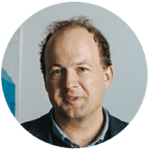
Prof. Dr. Harald Kunstmann
Institute of Meteorology and Climate Research IMK-IFU
Karlsruhe Institute of Technology
Campus Alpin
Kreuzeckbahnstrasse 19
82467 Garmisch-Partenkirchen, Germany
Phone: +49 8821 183 208
Email: harald.kunstmann@kit.edu
His research addresses the impacts of climate change and land use change on water availability and flooding risks. His work comprises dynamical and statistical downscaling of meteorological fields, fully coupled atmospheric and hydrological modeling, convection permitting modelling, seasonal predictions, geostatistical merging of hydrometeorological data, the evaluation of attenuation data from commercial microwave links for the line integrated quantification of precipitation, and the setup and operation of hydrometeorological observatories. His research focus on climate- and water sensitive regions worldwide; in addition to Europe and the Alpine Space his research covers the regions of West Africa, East Africa, the Near East, and China. He was associate editor for Journal of Hydrology from 2010-2015, is member of the steering committee of TERENO, and is president of the International Commission for the Coupled Land Atmosphere System (ICCLAS) of the International Association of Hydrological Sciences (IAHS). He regularly convenes and co-convenes sessions both at EGU and IAHS conferences.
Within the Research Unit, Harald Kunstmann is the principal investigator of the sub-project “Small-scale hydrometeorological variability and uncertainty quantification in the climate – malaria modeling chain”.

Swiss Tropical and Public Health Institute (Swiss TPH)
Department Public Health and Epidemiology
Socinstraße 57
4051 Basel, Siwtzerland
Phone: +41 61 284 8109
Email: pemelope.vounatsou@swisstph.ch
Within the Research Unit, Penelopé Vounatsou is the principal investigator of the sub-project “Spatio-temporal modelling to assess the impact of climate change on the burden of malaria and to support early warning systems”.
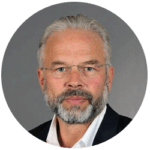
International Agricultural Trade and Development
Humboldt University Berlin
Unter den Linden 6
10099 Berlin, Germany
Phone: +49 30 2093 46 810
Email: grethe@hu-berlin.de
Within the Research Unit, Harald Grethe is the principal investigator of the sub-project “Economy-wide effects of climate change induced health impacts based on General Equilibrium Models”.
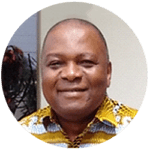
Statistician General of Sierra Leone
A J Momoh Street
Tower Hill, PMB 595
Freetown, Sierra Leone
Phone: +232 22 223287
Email: osman.sankoh@statistics.sl
Dr Sankoh joined INDEPTH from the Institute of Public Health at the University of Heidelberg Medical School in Germany where he worked as a Biostatistician / Epidemiologist from December 1999 to June 2002. During that time, he collaborated with the Nouna Health Research Centre in Burkina Faso and spent several research periods in Nouna. During his tenure, INDEPTH has grown in membership and in its international visibility and impact. Osman is a member of the Advisory Boards/Committees of several international academic journals including The Lancet Global Health and the International Journal of Epidemiology.
He has also acted as a consultant on population and health issues to the World Bank, the World Health Organisation, and the African Census Analysis Project at the University of Pennsylvania in the US. Within the Research Unit, Osman Sankoh is Mercator fellow and supports the development of Massive Open Online Courses (MOOCs) within central project 1.

Prof. Dr. Joacim Rocklöv
Section of Sustainable Health
Department of Public Health and Clinical Medicine
Umeå University
6B, Målpunkt R, Analysvägen 3
Norrlands universitetssjukhus, 415
90187 Umeå, Sweden
Phone: +46 70 636 1635
Email: joacim.rocklov@umu.se
Joacim Rocklöv was awarded the Institute Pasteur and Prince Albert II of Monaco prize for his research on arboviruses and global environmental change in 2019. He has been contributing to IPCC and WHO assessments, and he is co-leading the second working group of the Lancet countdown. He is engaged in several international research projects in this area funded by NIH, Welcome, and the EU, and leads several Swedish funded research projects. Professor Rocklöv has been a collaborating partner to the WHO TDR early warning project for a number of years and his lab is maintaining the current early warning web-dashboard solution for the EWARS community.
Professor Rocklöv is a recurrent consulted expert for WHO and the European Centre for Disease Prevention and Control (ECDC). He is an associate editor for the International Journal of Epidemiology and Frontiers in Public Health, section for planetary health. Within the Research Unit, Joacim Rocklöv is Mercator fellow and supports the statistical analysis of sub-project 1.
RSS – Remote Sensing Solutions GmbH

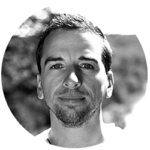
Dr. Jonas Franke
RSS – Remote Sensing Solutions GmbH
Dingolfinger Str. 9
81673 Munich, Germany
Phone: +49 89 4895 4766
Email: franke@rssgmbh.de
Center for African Bio-Entrepreneurship (CABE)
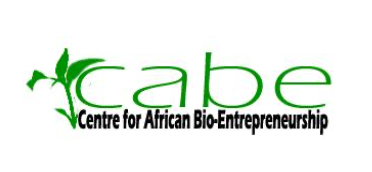
The P2 project on climate-sensitive nutrients, undernutrition and malaria has partnered with the Center for African Bio-Entrepreneurship (CABE).
CABE is a non-profit organization founded in 2004 and located in Nairobi, Kenya. CABE was established as a knowledge sharing organization that works to enhance the skills of smallholder farmers, women and youth entrepreneurs in Africa. CABE strives to advance meaningful participation in agriculture and agribusiness activities through entrepreneurship, capacity building, establishing market linkages, access to improved inputs, and developing access to extension and financial services.
CABE and the P2 team jointly implement the home gardening component of the cluster-randomized intervention study in Siaya, Kenya, aiming to improve the status of climate-sensitive nutrients, child undernutrition and malaria. More specifically, CABE implements the training, guidance and follow-up of garden leaders and project beneficiaries in the intervention arm of the study.
Website: https://www.cabe-africa.org
European Cool Roofs Council (ECRC)
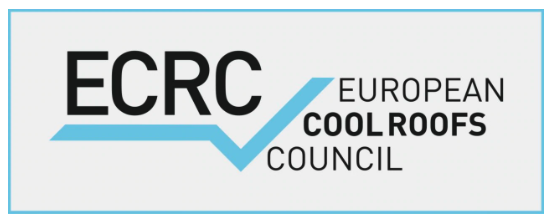
OTT HydroMet GmbH
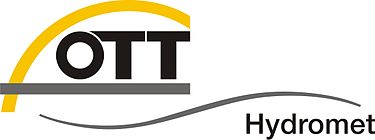
OTT HydroMet GmbH
Ludwigstraße 16
87437 Kempten, Germany
Phone: +49 831 5617-0
Email: euinfo@otthydromet.com



